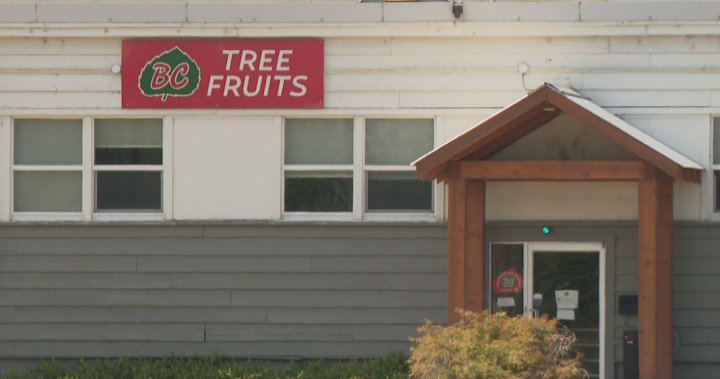The recent announcement of the closure of BC Tree Fruits has left B.C. orchardists wondering what their next steps will be. The cooperative, which was first established in 1936, helped farmers promote and transport their fruits to market. However, with the cooperative no longer being able to effectively operate the business, farmers are now left to find alternative options for marketing and shipping their fruit. Private fruit packers appear to be the only immediate option available to farmers, but some are hesitant to make the switch due to concerns about pay and fruit quality.
One orchardist, Mike Mitchell of Lake Country, expressed his loyalty to BC Tree Fruits despite offers from private businesses. Mitchell emphasized the importance of quality fruit production in the industry and predicted there may be a shift towards higher-value fruits like cherries in the future. While Mitchell discussed the possibility of starting a new packing entity with a group of growers, the future of B.C.’s fruit industry remains uncertain. The closure of BC Tree Fruits has raised concerns about cold storage and distribution infrastructure, particularly for small farmers who rely on the cooperative to sell their crops.
B.C. agriculture minister Pam Alexis has pledged to work with fruit growers to understand the impacts of the closure and provide support where possible. Jennifer Deol, who runs There and Back Again Farms in Kelowna, highlighted the challenges growers are facing in finding storage options for their crops amidst a catastrophic growing season. Without access to BC Tree Fruits’ infrastructure, many growers may have to turn to private packers and risk receiving less money for their fruit due to tight profit margins. Farmers are now scrambling to find solutions for distributing their crops and ensuring they do not go to waste.
As the industry navigates this unprecedented situation, there is a sense of uncertainty and urgency among B.C. orchardists. The closure of BC Tree Fruits has forced farmers to consider alternative options for marketing and shipping their fruit, with many facing challenges related to storage and distribution. The potential shift towards higher-value fruits and the possibility of forming new packing entities indicate a period of change and adaptation in the industry. With the support of government agencies and the resilience of growers, the fruit industry in B.C. may find new ways to thrive in the face of this unexpected turn of events.


